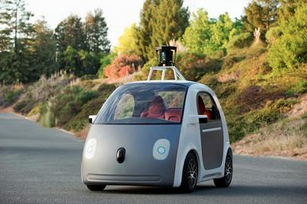Google hunts for self-driving car partners

Google is seeking partners to make fully autonomous vehicles a commercial reality within the next five years.
The Mountain View, CA-based firm is on the hunt for partners within the car manufacturing industry. Rather than become a car maker itself, the tech giant would prefer to work with others to bring self-driving cars to market. According to the Wall Street Journal, the head of the autonomous vehicle project at Google, Chris Urmson, said:
"We don't particularly want to become a car maker. We are talking [with] and looking for partners."
In the meantime, the autonomous vehicle project has made progress since the debut of the first prototype. In April this year, Google revealed that an improved version of the self-driving car was taking to the streets of Mountain View, California, and prototypes have logged thousands of miles in testing.
The autonomous vehicle operates without the standard controls we are used to seeing in cars -- such as gears or a steering wheel. Sensors combine with custom software which allows the car to detect hundreds of distinct objects simultaneously -- from pedestrians to stop signs and cyclists -- and then analyzes this data to 'act' accordingly.
Google's car uses 64 lasers which scan across 360 degrees, a camera, and GPS map data to generate a map of its surroundings and drive safely. Software models are built in to react to predictable and unpredictable scenarios, according to Urmson.
The project director also says that while Google is on the hunt for partners, the company is working with automotive suppliers to build a fleet of more advanced "beta" prototypes. Testing the advanced models is due to begin early next year.
At a conference this year, Google co-founder Sergey Brin said he hopes the self-driving car will eventually "transform transportation around the world, and reduce the need for individual car ownership, the need for parking, road congestion and so forth."
Urmson says that "it would be goofy for us to try to replicate" the expertise of automakers who already know how to make cars. In other words, Google can supply the technology, while car manufacturers can take care of the build itself, as well as provide expertise in safety and regulatory issues.
"We are still assessing the business model," Urmson said. "We don't know what the right relationship is."
Read on: In Google's world
- Google, Oxford University partner in artificial intelligence research
- Google offers non-profits free access to satellite images
- Google triples Chrome bug bounty rewards to $15,000
- Google lures startups to cloud following with $100,000 credit
- Google tests ultra high-speed wireless Internet technology
- Google launches quantum processor, artificial intelligence project